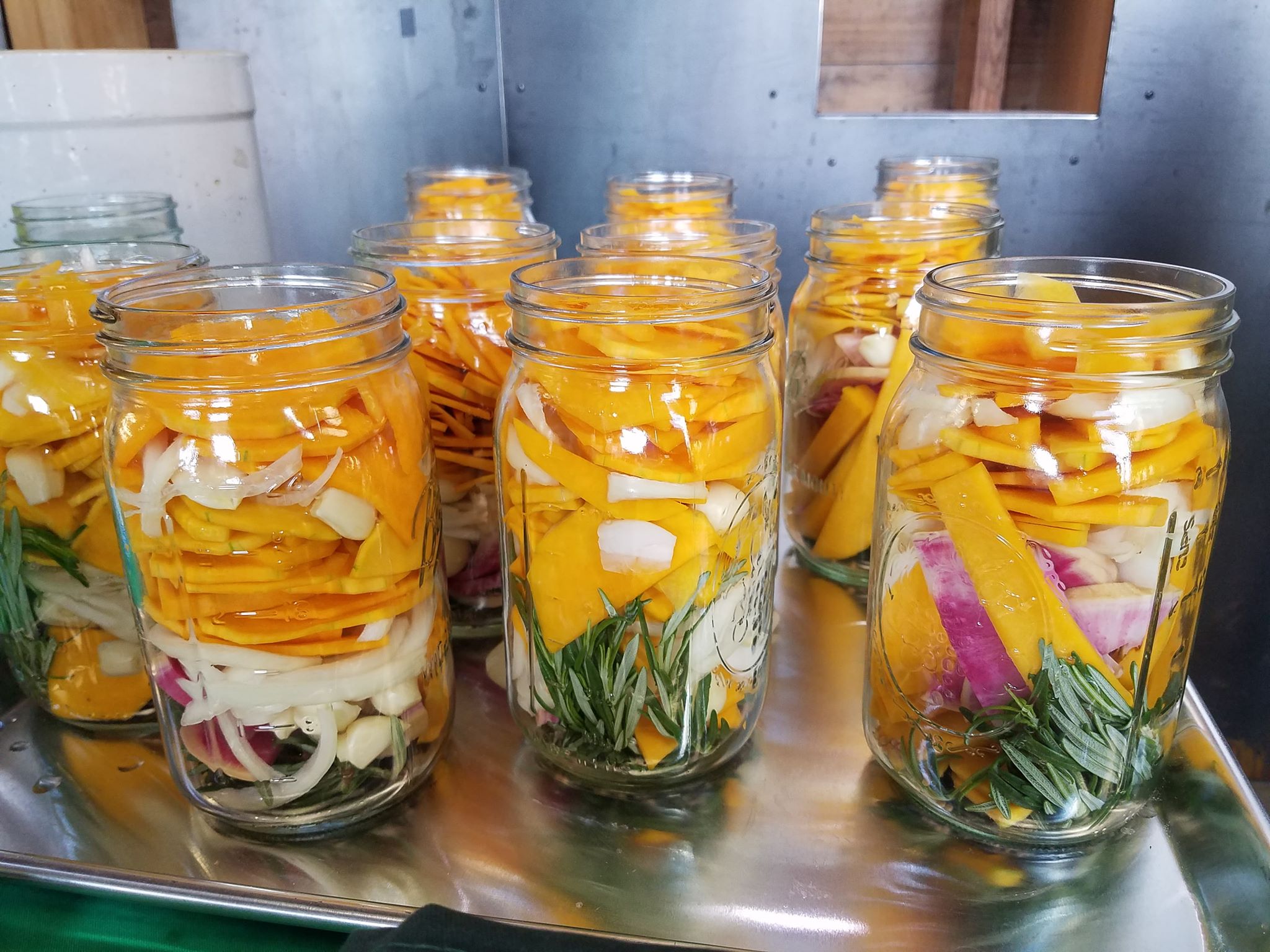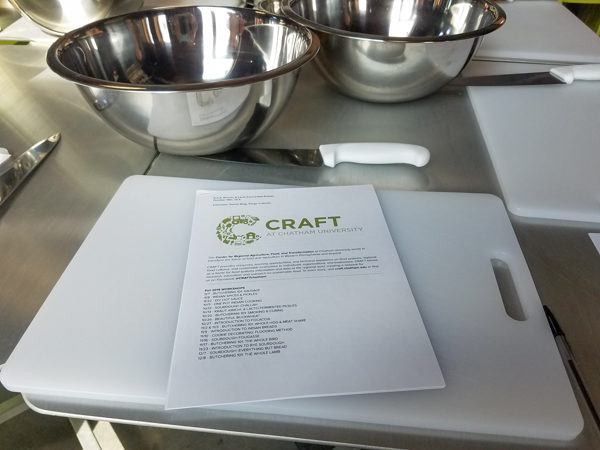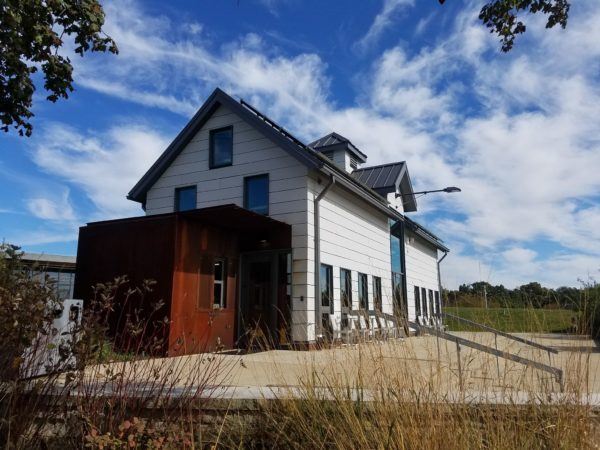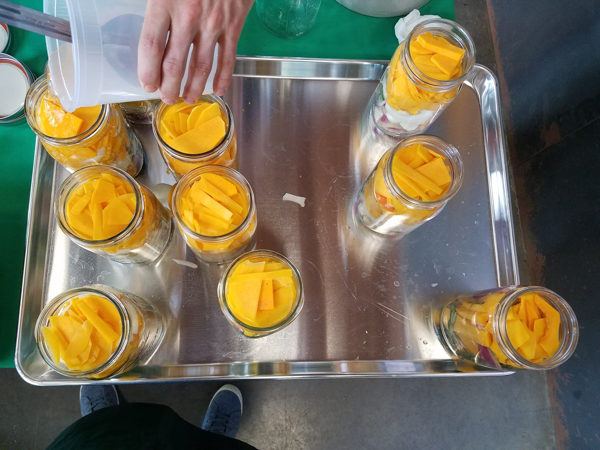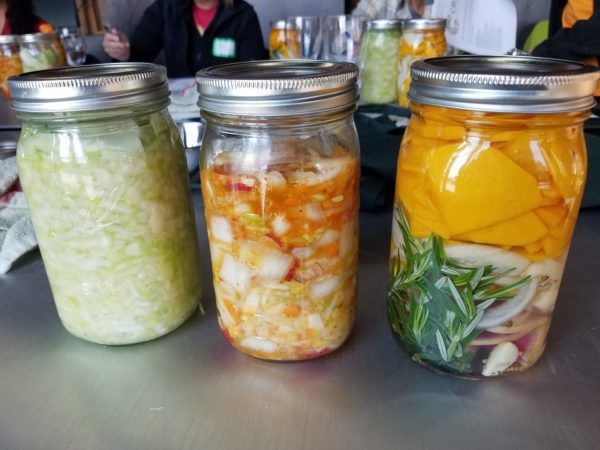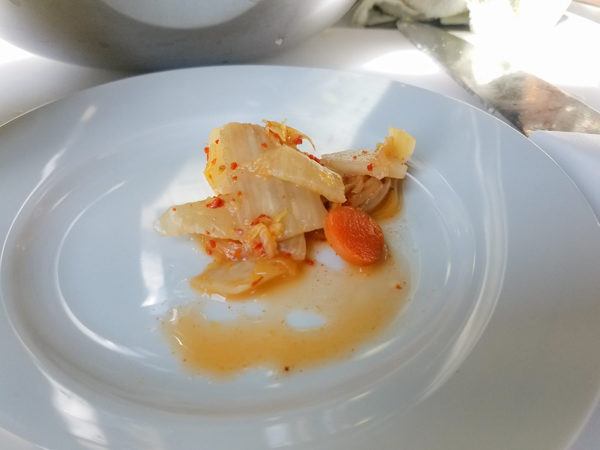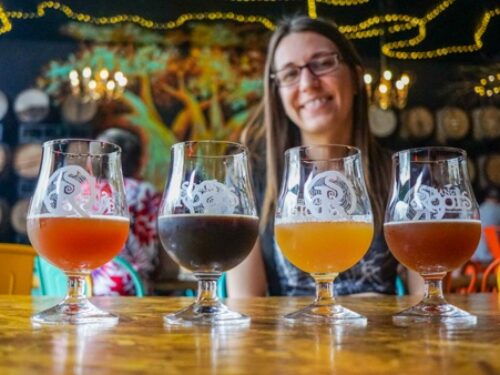Published by Angie. Last Updated on November 22, 2024.
Disclaimer: Our site uses demographic data, email opt-ins, display advertising, and affiliate links. Please check out our Terms and Conditions. Pricing, operating hours, or menus may have changed since our initial visit and may not be reflected in subsequent updates. Please confirm these directly with any business or attraction prior to visiting.
CRAFT (The Center for Regional Agriculture, Food, and Transformation) at Chatham University is affiliated with the school's Food Studies program and aims to transform our food systems in Western Pennsylvania through education and outreach. Some of those education opportunities include fantastic food-related workshops and classes hosted at the Eden Hall campus in Gibsonia.
The CRAFT Chatham classes have long been our list to attend, but spaces are limited and they often sell out very quickly. Classes really span the gamut of topics from whole hog butchering, to sourdough bread baking, to Indian food, to fermentation. Instructors are all extremely knowledgeable and talented experts in their field.
We were lucky enough to snag a spot in the recent Kraut, Kimchi, and Lacto-Fermented Pickles class taught by Trevor Ring. Trevor graduated from the Chatham food studies program and also studied with the famous fermentation expert Sandor Katz. Basically, he's very into fermentation and knows what he's talking about!
Planning a trip to Pittsburgh?
Book your trip early to snag a deal and have a great time!
Top Experiences and Tours 🍇
Top-Rated Hotels in Pittsburgh 🏨
- Great Value: Drury Plaza has great prices downtown
- Good Views: Sheraton Station Square has stellar views from river view rooms
- Free Parking: Hampton Inn Strip District has a free parking and a great location
🏠 Looking for an apartment rental? Find a deal on VRBO!
Fermentation at CRAFT Chatham
The Eden Hall campus is fun to explore with its solar panels, gardens, and greenhouses. It's kind of a haul from downtown Pittsburgh, but it's a beautiful area. (Why not make a day of it and visit Strange Roots or Casa Narcisi Winery while you're up here?)
I arrived on campus and found parking with no problems thanks to the map that we were emailed a few days before the class. The classes take place in the Dairy Barn Cafe, which is a stunning building with lots of windows and natural light.
The first part of the class was a presentation by Trevor explaining the basics of fermentation including its historical importance and the benefits of eating fermented foods.
Then we started our first hands-on project: sauerkraut! Trevor demonstrated the steps and then we were set loose to each make our own jar of sauerkraut. We chopped the cabbage, salted it, squeezed it for several minutes until it was nice and juicy, then packed it tightly in a mason jar. There were also caraway seeds available for those who wanted to fancy up their kraut, but I chose to keep mine basic.
Our next two projects were kimchi and butternut squash pickles. These were both communal projects meaning we made one big batch of each and then split them up into individual jars to take home. Each person had an ingredient or two that they were responsible for prepping before it was added to the product – the communal aspect of these two projects was really fun.
I also loved that Trevor chose the projects based on what vegetables were in season so that nearly every ingredient was local. For example, since the class was in October, cucumbers were no longer in season so instead of making traditional cucumber pickles we used the in-season butternut squash.
Trevor showed us in class exactly how to care for our ferments once we took them home. It was surprisingly easy- we just had to weigh down the vegetables so they were submerged in brine, cover the tops with a loose cloth (we used cheesecloth), set the jars in a cool and dark spot, and then wait a few weeks.
One of the reasons I took this class was that I was always kind of scared of making fermented foods at home. I didn't want to get sick or deal with the things that can grow on top of foods while they're fermenting. Most of my fellow class attendees expressed similar concerns. But Trevor explained during class that if anything grows on the surface of the ferment, you can just scoop off that layer and the rest of the ferment is typically fine.
If the rest of the ferment smells good and tastes good, you're good to go!
Join our Facebook groups Things to Do in Pittsburgh and Pittsburgh Photography for more local content!
The Final Product is Delicious
I'm happy to report that after waiting for three weeks we unveiled some delicious products. We did scrape the top layer off of all three ferments as they were darker colored and we weren't really sure what was going on with them. But after doing that, we sniffed, took a small bite, and were pleasantly surprised! All three products tasted fantastic.
Our kimchi turned out gingery and spicy (I added an optional chopped habanero to my jar), the sauerkraut is way better than anything you buy in a store, and the butternut squash pickles have a great garlic, rosemary, and pickling spice flavor.
I absolutely loved the hands-on aspect of this class, the fact that we took home three different ferments, and that the class has inspired us to dive deeper into the world of fermentation. We can't wait to take even more classes at CRAFT Chatham!
CRAFT Chatham classes are often conducted at the Eden Hall campus at 6035 Ridge Avenue in Gibsonia, PA. Classes include an array of Indian dishes, bread, fermentation, butchering, and so much more. We recommend looking out for classes early as they sell-out fast.
Looking for more cooking classes in Pittsburgh? Check out Chop, Wok, and Talk or the cooking classes at the Market District Robinson!
